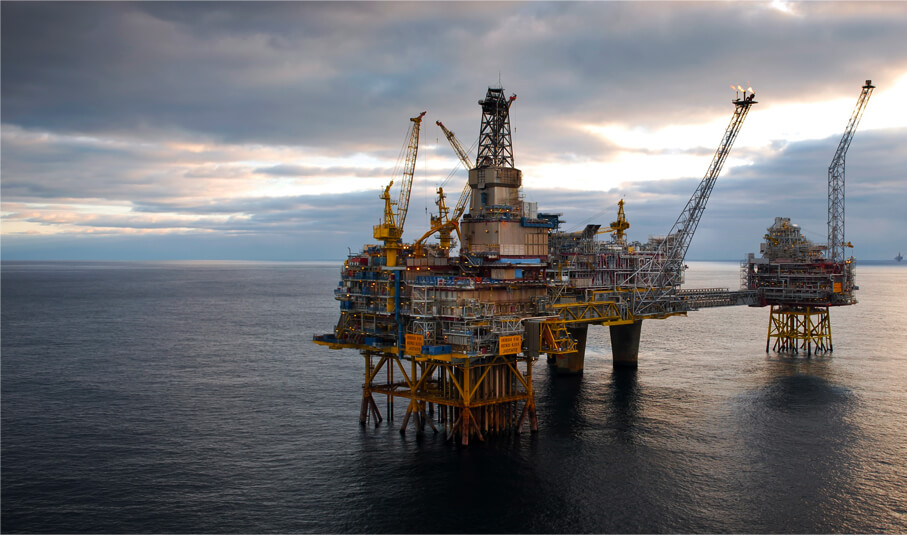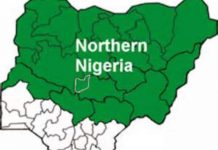Dr Diran Fawibe is the Chief Executive Officer, International Energy Services (IES). In this interview, Fawibe explains why crude oil drilling in the North is necessary; why it has been difficult for promoters of modular refineries to see their dream come true; the need for the Federal Government to expedite action on the Petroleum Industry Bill (PIB) and other knotty issues in the nation’s oil and gas sector. Excerpts:
What is your thought on the drilling that has been going on for years in the North?
The Federal Government is determined to explore for oil in some parts of the North for obvious reasons, partly to ensure that every part of the country that has potential for hydrocarbon is explored – and there is still need to explore every available potential for hydrocarbon – notwithstanding the fact that Nigeria is already a major oil producing country with oil and gas from Niger Delta. We all know too well that other countries are doing similar thing.
We may say that we have been on this search for a long time without much to show for it, but we should also remember that in other countries where in the past there was no indication whatsoever about the presence of hydrocarbon, they have today struck oil and some of them are preparing to start production while some have already started producing oil or gas.
When you remember countries like Ghana, Uganda, Mozambique, Kenya, these are countries that about 20 years ago, you would never believe they could produce a single barrel of oil. Even though today we might say that the efforts to explore, drill and get oil in the North has proved unsuccessful so far, we can never write off these initiatives and efforts, because there is one element that is not constant in the world of petroleum development, and that is improved technology to explore for oil.
There are very strong opinions and voices that some hydrocarbon in form of oil or gas does exist in some parts of the North which should be explored without let up. Obviously, nobody wants to throw money into the Atlantic Ocean as it were, but all these countries that have discovered oil today didn’t just discover oil overnight. It was as a result of many years of diligent exploration and deployment of new technologies as well as perseverance on the part of the authorities, believing that once you have a shred of evidence that there is likely to be hydrocarbon in a particular area or region, you simply start to put in resources to explore.
In some countries, you may achieve success within a short time, while in some other places it may take years before you strike gold. The fact that we have discovered oil very quickly in the Niger Delta does not mean that other parts of the country may not be harbouring serious deposits of hydrocarbon. I think that was what informed the persistent interest in the North.
Is the divestment decision by ExxonMobil based on any misgiving on the part of the company against the Federal Government or simply a drive to encourage indigenous participation in acquisition of oil blocks?
The purported newsbreak from ExxonMobil is obviously being taken too seriously by many people beyond the realm of the realignment of asset portfolios by the company which is not the same idea one has been seeing over the past divestments in Nigeria.
The scenario that may be playing out here is that ExxonMobil could be aiming to fast- track the development of some of its undeveloped fields but I don’t believe that will amount to wholesale divestment because ExxonMobil has hundreds of billions of investments in Nigeria. As much as they may want to focus on some new areas particularly in the offshore deep water, it stands to reason to cash out on some fields that are currently dormant, and devote as much resources as possible to these new and more productive fields in their areas of operation.
Let me say this within the context of divestment, that there is nothing fundamentally wrong with divestment as long as it is not being done out of malice or protest against perceived unfair policies and practices. If there is any hint of the latter, issues of concern could be resolved without allowing such matters to degenerate to parting ways or leaving the country in protest, which may actually create a bandwagon effect where some other companies may follow suit.
As far as I am concerned, while we want to encourage effective indigenous participation in the Nigerian upstream sector, we however, still need the IOC’s that have made significance contributions to the development of Nigerian petroleum industry and will continue to do so. Besides, we still need the IOCs not only for the development of some difficult fields where they have developed technologies and expertise, but also in terms of funding. Indigenous companies may come in at certain levels but they still have some challenges particularly about funding, although happily, some of them have re-engineered their operations and were able to attract foreign funds in various forms. Maybe you could go to the international market to buy technology or expertise but you need money to be able to do that. Also, some of the indigenous companies that were awarded oil blocks, or even marginal fields in the past have been constrained for lack of fund. Some of these things constitute a struggle, but as it is always said, aluta continua.
One issue that is still a tipping point in the industry today is the issue of PIB (the Petroleum Industry Bill). This has generated a lot of emotion across the country, the petroleum industry as well as oil producing communities. I think it is about time we take the bull by the horn and put this issue behind us by resolving some of the knotty areas on the bill. So many people have emphasized all that the non-passage of the bill has created a lot of uncertainties for investors wanting to invest in the oil sector, including the IOCs.
Now that the general elections are over, and a new term of the present administration is about to commence, every effort must be made to ensure that the bill is enacted into law including the Petroleum Industry Governance Bill which has been passed by the National Assembly. The President, as a matter of urgency, must order whatever modifications that is required for him to give presidential accent to the PIGB as soon as possible. Thereafter, the other three remaining sections should be made to go through the legislative processes very quickly by the National Assembly as soon as the 9th Session of the NASS is inaugurated, so that within the next 12 months we should have the entire bill enacted into law. With PIB in place, government and every stakeholder, the local and international investors, the regulators, the oil producing communities, everybody at large will then have a focus as to how to move the industry forward.
Some of the IOCs are facing court cases as a result of non-remittance of royalties, is that the best option for the Federal Government?
Personally, I believe in dialogue between disputing parties at different levels of engagement. In respect of the IOCs having issues with the Federal Government, you can even see, based on the newspaper report that the president disagreed with his attorney general about the mode or approach to resolving the matter. Over time, I have always advocated for dialogue between the government and the IOCs especially on matters that affect an important areas of the industry’s operations. Government has obligation to the Nigerian people to ensure that there is fairness and equity in its dealings with any economic agent, be it international or local. The IOCs must not be made to get away with government’s share of its revenue just as the Federal Government of Nigeria will not appropriate what rightly belongs to the IOCs. How we resolve this is by way of thorough investigation and dialogue.
A lot could be done behind the scenes instead of making it at a public circus, and the press at times will fan the ember of such dispute beyond a reasonable level. In other words, government must engage independent consultants that will undertake a thorough investigative analysis with clear mandate of making recommendations to the government and when such recommendations are made, the government should invite the companies to respond to the outcome of such investigations with a view to reaching amicable settlement.
Therefore, going to litigation should be the last resort, and as we used to say in my community, ‘you don’t go to court and later turn round to become friends’. In other words, relationship tends to be destroyed or strained as a result of litigation which invariably engenders distrust and bitterness. Therefore, every effort must be made to ensure amicable settlement unless there is a recalcitrant party that is impervious to reasoning. The government of Nigeria will not surrender its sovereignty and control of its resources and I believe the oil companies are very much aware of this. When you are dealing with organisations or companies that have been in Nigeria for 60 years or more, they already know the culture of the Nigerian people and orientation of the government.
What impact will it have on their investment and future dealings with Nigeria?
That is the aspect that the government should also consider very seriously. Today, there are so many countries that are looking for investible funds in their oil and gas industry, even in renewable energy. Gone are those days when we were the darling bride when there were not many countries with oil and gas resource endowment. Today, we are in a situation where a company can divest in one country and go to another country. In other words, we should not create a situation where an IOC divests from our country and takes the money elsewhere to invest. That is the issue, and which calls for fairness and equity on the part of the government – and this must always be at the back of our minds, that these companies have alternatives to this country. Fifty years ago, we could bluff some of the companies. For example, we are now struggling to export our crude oil to the US, unlike in the past when if Nigeria decided to embargo the supply of our oil to America, they could wage war against us, but today who cares?
We now have to be seeking alternative markets for our crude oil, and we should not take any market for granted because today we may be going to Asia, but US crude and gas are competing with Nigerian oil seriously in that region, particularly China and India. This means that a place we consider as a relatively safe haven for our crude oil today may not be there tomorrow. We don’t want to give opportunity to competitors to displace us from our captive market. In effect, whatever steps or decision we take must be carefully considered.
Let me say this, as long as Shell, Exxon Mobil, or Chevron are producers here in Nigeria, at least a certain percentage of their production in terms of their equity crude will be shipped out under their auspices. They will be off-takers of their own equity crude which we will have as a base load for export, and on this government will get its royalty and petroleum profit tax. It will only be Nigeria’s share of equity crude that we could be struggling to market. But assuming that the oil majors are no longer equity holders or reduced to small equity holders, it means that they no longer have much equity crude to take out, and we are left with so much crude for export to the international market.
Unfortunately, we have still not succeeded in the plan to convert our crude into refined products here. Today we are producing about two million barrels per day or at times less. It appears we take pride and satisfaction in being able to export virtually this number minus the quantity that we could refine in our local refineries with their epileptic performance. But why is it not possible for us to refine half of the national output? We don’t have to export crude; we could export refined products after satisfying our local markets, but the tragedy of our situation is that we are currently importing petroleum products in which case, we cannot even refine our own crude to meet the maximum level of our needs, and I consider this a tragedy.
These are some of the fundamental issues in our petroleum industry situation, and I believe the president, during his second term, will have to critically address this issue within the framework of the overall petroleum policy which requires strategic thinking out of the box: such as, how to drive investment into the country because not many indigenous companies have the resources to go into exploration of offshore deep water assets, it is the major oil companies. Even when it comes to development, who will put money upfront for the development of an offshore deepwater oil field, of 15 billion dollars; which of the indigenous companies here has such financial capacity – and that is for development and not exploration. It is the IOCs that can put up such kind of money without too much sweat for projects like Egina, Bonga, OML 245, Owowo, Bosi, etc.
We should be very careful in the way we organise ourselves and how we run the business taking cognisance of short, medium and long term perspectives.
The Federal Government recently announced its plans to divest some percentage of its equity from the Joint Venture partners to fund the 2019 budget. What do you think of this proposal?
Opinions on this issue of government divestment from the IOCs are obviously varied. Let’s take a typical example when government divested from Shell in the 80s, government used that divested fund to pay its share in the Nigerian LNG development – it was for a specific investment, and today, anybody could see the financial benefits because government has reaped so much dividends from the LNG investment. If it had been that kind of strategic divestment, it is understandable but if you are now divesting to fund the national budget, I am a bit skeptical or worried. It is an issue between divesting for the purpose of financing government budget or claiming to use it to finance infrastructure or keeping your investment.
In principle, government could divest but my own concern is the utilization of the fund. Do you put it in a sector that will be self-sustaining to expand the production capacity of the economy for sustainable development, if it is not the case it may be a tragedy to say you want to divest. It is a logical argument that when you divest, whoever you give the money to will invest it in whatever you want to use it for, but even with the divested shares, government will still be able to take some royalty and petroleum profit the taxes.
Some people have argued that government should divest from some of the assets of the companies and just devote itself to taking petroleum profit tax and royalty. Maybe ideally we could divest if the reason is for using the money well and it will be monitored; after all, in some countries the private sector or individuals own completely the assets of the oil companies where government concerns itself practically in collection of taxes. Although by having equity, you collect much more over the taxes.
Since the past 20 years, no single private refinery has been fully completed in the country despite the noise by investors. What do you is responsible?
The Dangote refinery will surely come on stream. Anyone who has gone to the site will know that the work is progressing at a fast pace. Building a refinery of that magnitude is not a walk in the park in terms of something that can be brought on stream in a jiffy; but work is going on and the construction has reached advanced stage. A project of that nature tends to shift completion date but I strongly believe it will come on stream within the next year or two. So, there is no doubt about the fact that the refinery will come on stream.
The prospect of this refinery coming on stream does not mean that the Nigerian government refineries should not work. Currently, an Italian company has been contracted to rehabilitate the Port Harcourt Refinery and I understand work is going on there, after which attention will shift to Kaduna and Warri refineries. The expectation is that the Nigerian refineries should be able to produce up to 90% if not more of their installed capacity. How soon that will come to reality is an open question.
Managing private refinery is quite tough. The problem we had when government started licensing refinery was that it was the same government that put constraints along the way indirectly, by way for some conditionalities that made the companies not to be able to perform. For example, licenses were given to people, without due diligence as to their ability or capability to build a refinery, the end result was that most of the investors had no financial capacity to build one. When it comes to technology you can buy, but even then you have to pay for it. Most of those investors, have no financial strength to develop a refinery for which they got a license; people with political connections struggled to get licenses.
This is the same thing being witnessed in the power sector today. The DisCos and GenCos of this world have enormous problems in meeting the expectations of government and consumers simply because the investors have limited financial capacity to operate and expand their facilities, hence they are stuck. You heard recently that even the Federal Government has approved the plan to buy power from the GenCos and presumably by-pass the DisCos to supply power to Aso Villa. This illustrates the kind of poor performance of the limitation of the privatization of the power sector which was inaugurated and celebrated with funfare.
Many of the people who got license to build private refineries wanted to use the avenue to be able to lift crude oil, and they met a brick wall when government declined the demand, insisting at a point they must first start the construction and it must be up to a level before having access to lift crude oil. Some of them wanted to lift crude oil right from the first day they got the license and it did not play out. Some of them were expecting discount from the price of the oil, some were expecting sovereign guarantee on their investment and government said it was not giving guarantees. And to make matters worse, government at a time requested they must deposit $10 million in an escrow account at the onset of the project which I believe doesn’t make any economic sense. This is the money they could have easily used to start the development of the refinery. So these are the factors of government constraining the development of the refineries. But as it is, none of them could perform because none of them had the capability and especially the financial wherewithal.
The refining business is more difficult than even exploration and production. It is not the technology that is the issue because it is already proven. There are refineries all over the world but the management and the cost benefit of a refinery is much more challenging to realise than that of the upstream business. The margin on refinery operation is narrower than E&P and before you can make money on refinery business, it has to be run efficiently with little or no downtime in its operation.
We have quite a lot of problems in the downstream sector and to make matters worse, the regulated price of refined products particularly gasoline has not helped matters as government is still battling with the idea of deregulation of the sector.







